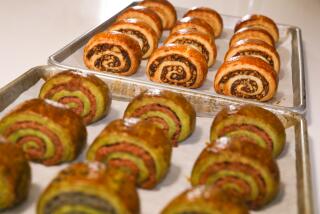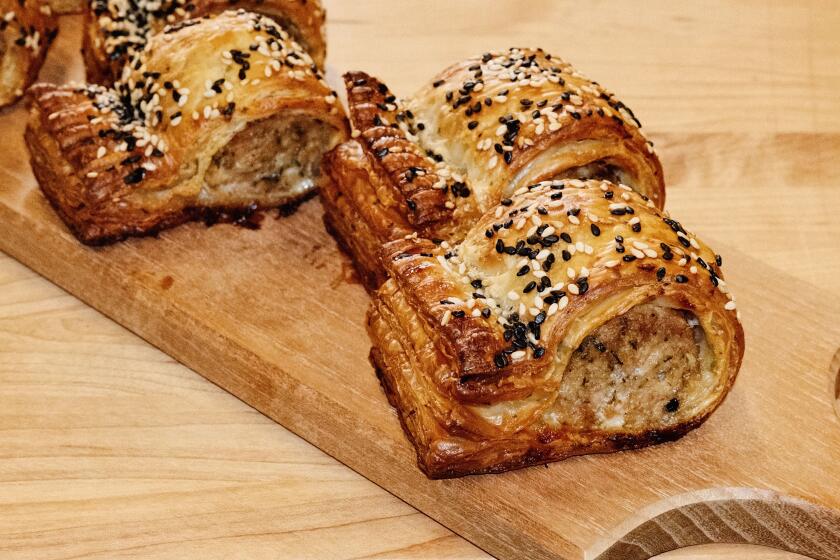For Hanukkah, these crispy latkes are served with a Middle Eastern twist
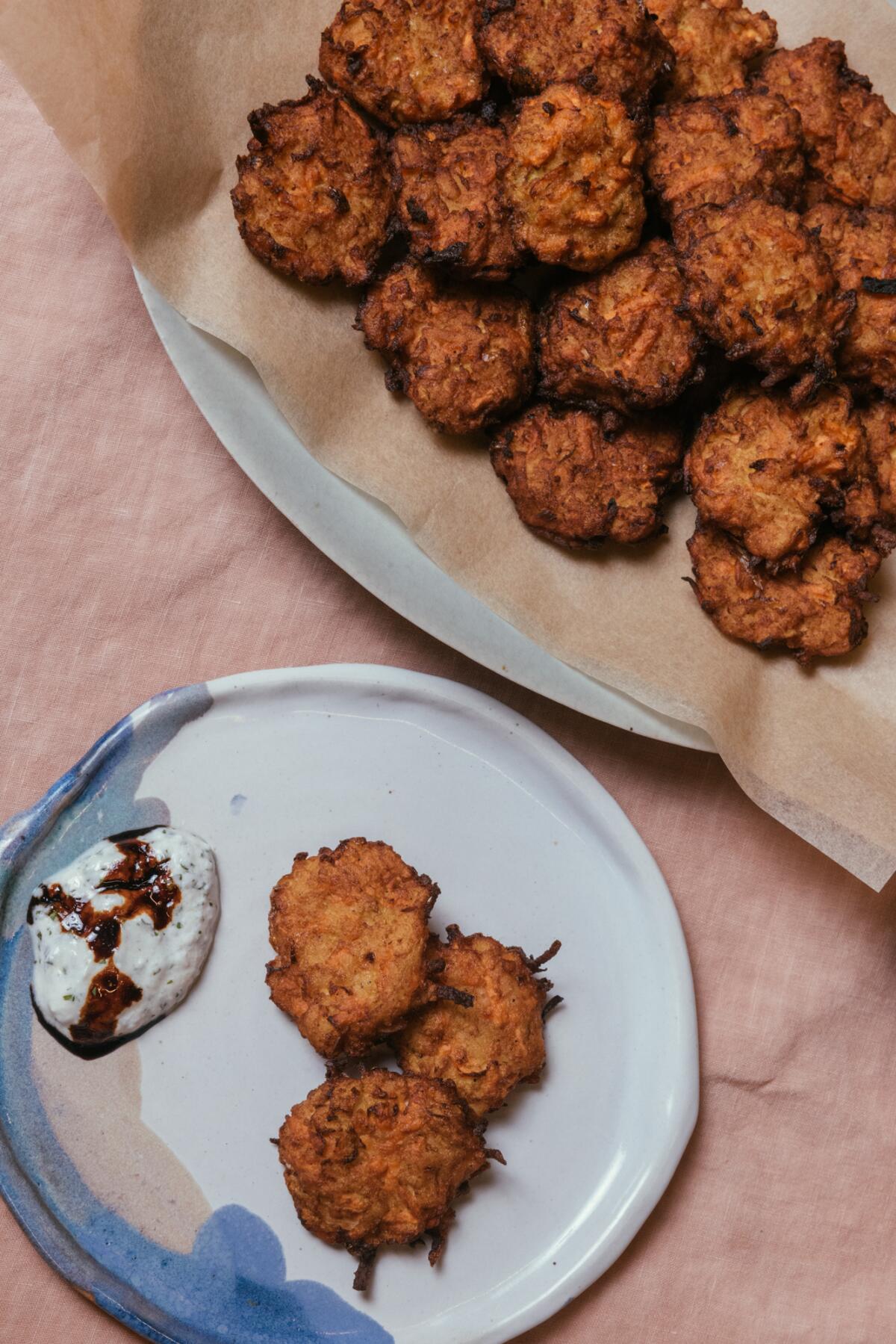
Golden latkes made with potatoes, squash and sweet potatoes are accompanied by a dip of yogurt, mint and date molasses. Plus, tips for making the best latkes.
Hanukkah was always, and still is, my favorite holiday — and not just because I was born on Hanukkah. In my Sephardic Jewish family, the Hanukkah tradition of frying food meant we had jelly-filled sufganiyot (doughnuts in Hebrew) with powdered sugar. We didn’t have Eastern European-style latkes, but instead we ate my mom’s own kind of latkes, small and crisp and made with what she had on hand, including potatoes and squash.
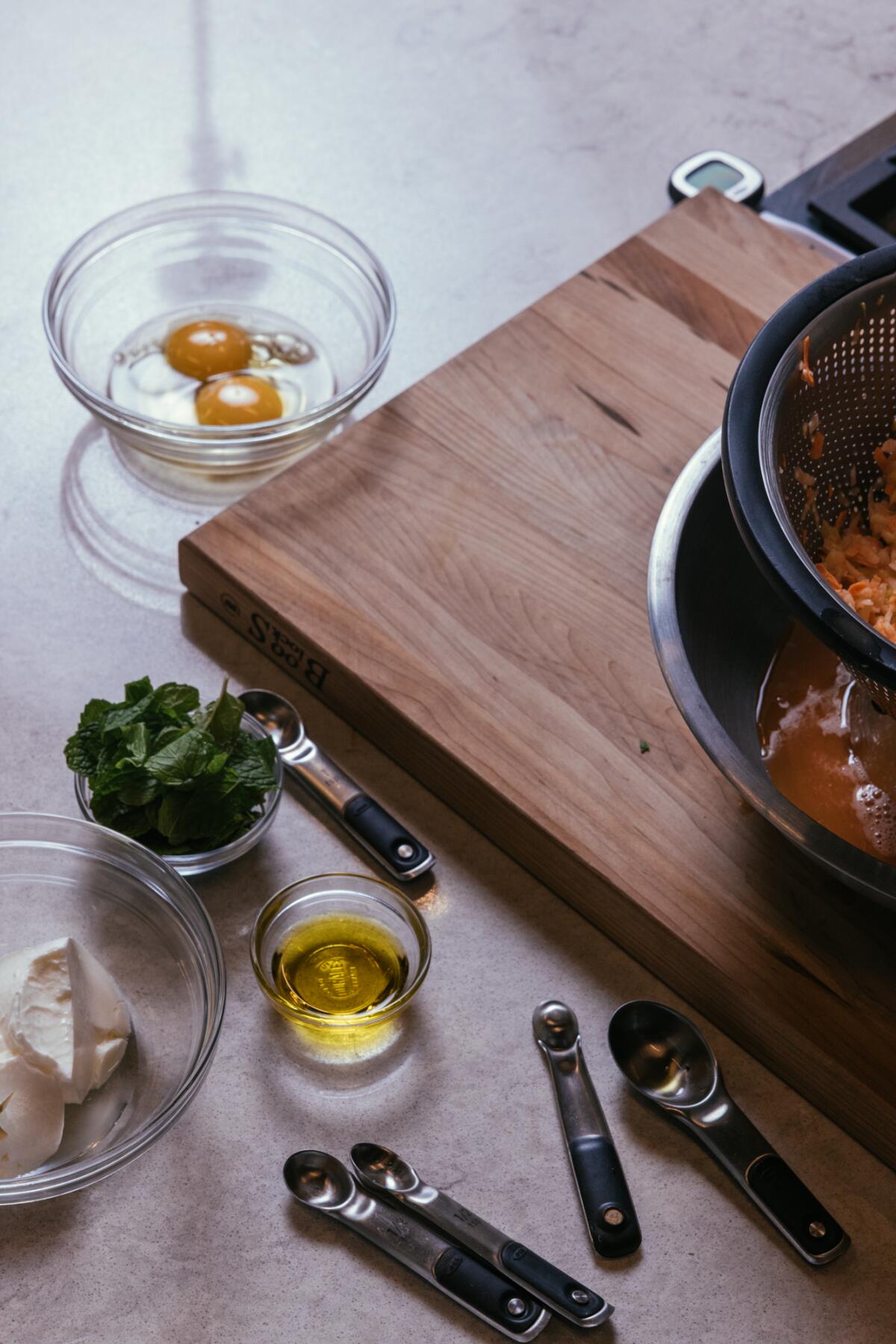
She called them “Hanukkah patties,” and I now make a version of hers that includes sweet potato, a nod to the flavors of American holidays, and incorporates some of the Middle Eastern flavors I grew up with by serving them with yogurt mixed with mint and date molasses.
The tradition of frying food in oil is to remind us of the Hanukkah miracle — when Jews reclaimed the Second Temple in Jerusalem in the 2nd century BC and discovered only enough oil to light the menorah for a single night; instead, it lasted for eight straight nights.
I have a vivid memory of my mother frying every day before lighting the candles that commemorate the rededication of the temple. I love the smell of fried latkes. Even the sound of the bubbly oil was exciting. My mom was so bossy and strict in the kitchen, but she was lucky if her latkes ever made it to the plate. My two little brothers and I used to stand by her just waiting for those to come out of the frying pan, as we rushed to grab and eat them faster than she could fry. We ate some of those, then rushed to the sweet doughnuts then went back to the latkes.
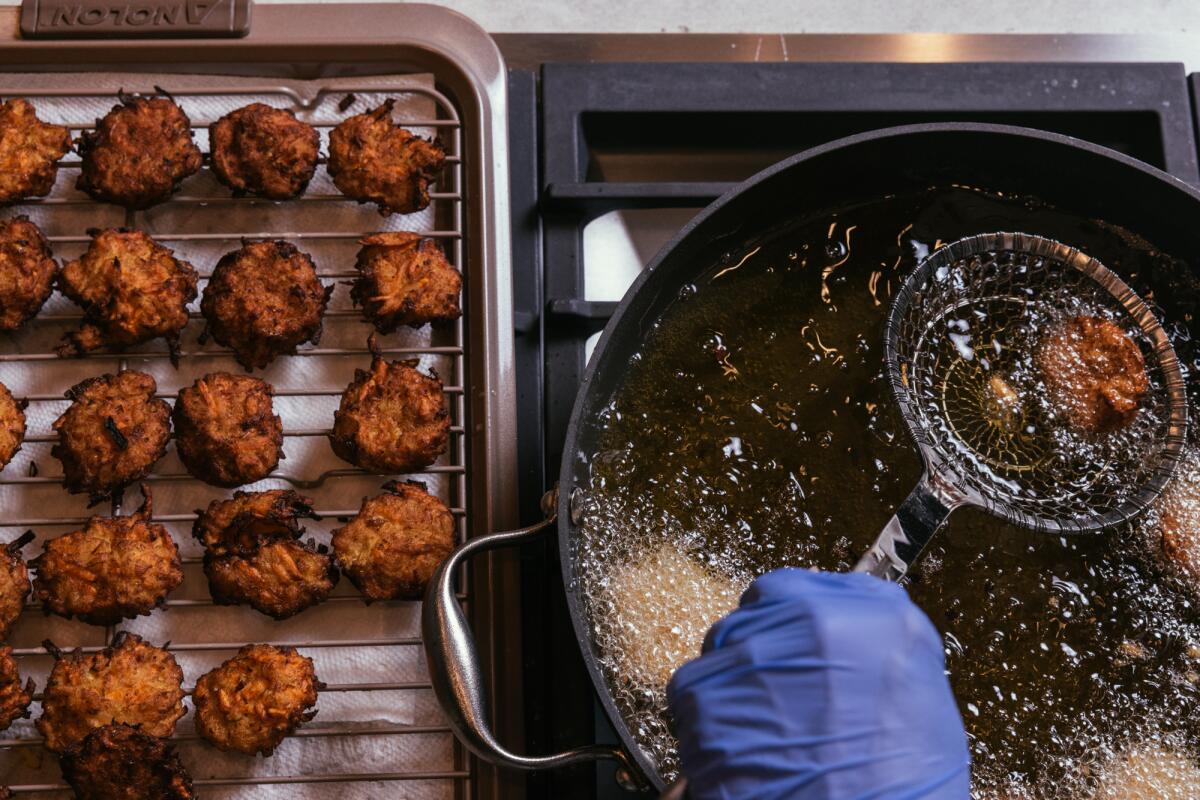
I’m from a large Middle Eastern family and was raised in Holon, a city very close to Tel Aviv. My dad was born in Yemen, and my mom’s parents came from Iraq and Egypt. My dad has 10 brothers and sisters, and I’m the oldest of more than 50 grandchildren. My aunts and uncles married into Yemeni, Moroccan, Tunisian, Turkish and Greek families. I was around so much food in our house; food was everywhere in so many forms and from so many family recipes — changing ingredients according to the places we came from or according to their availability.
Among the dishes my mom always made for us was kubbeh, traditionally an Iraqi Jewish dish of semolina dumplings stuffed with lamb and served in a beet broth, and jachnun, a Yemeni Jewish bread slowly cooked overnight, which we would have every shabbat morning with fresh tomato pulp and zhoug — what I call Yemeni salsa — and eggs that are cooked in the oven overnight along with the bread.
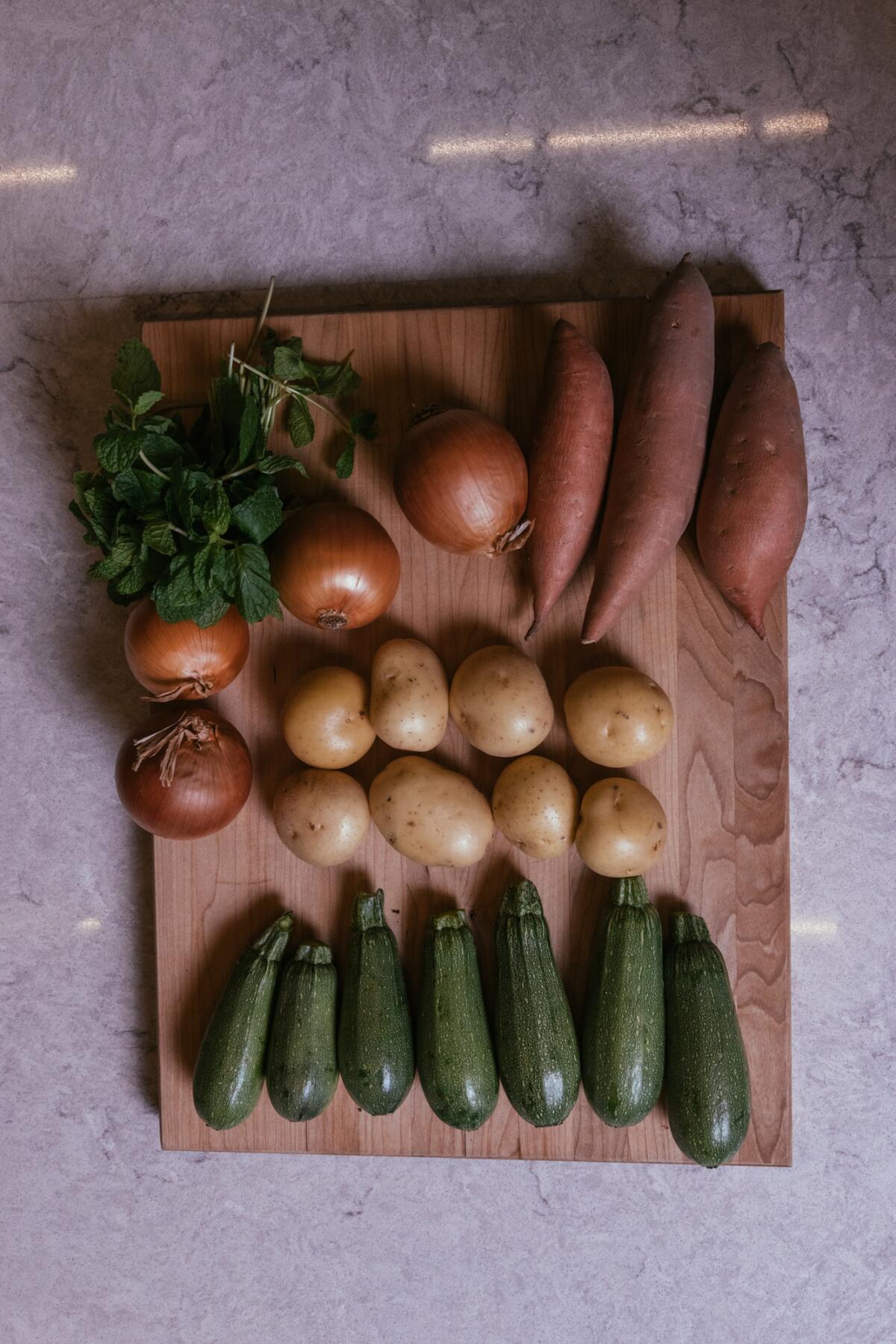
My mom never used sweet potato in her latke recipe, nor served it with yogurt on the side. My idea of adding the sweet potato was born when I wanted to combine the holiday season traditions in America into that dish. While in the U.S., we eat a lot of pumpkin and butternut squash during that season, I thought sweet potato would be a great addition to my mom’s original recipe.
The reason I refer to mine as Middle Eastern latkes is because most recipes for traditional latkes are based on potatoes, served with applesauce and sour cream. I chose yogurt as a serving option because it’s lighter than sour cream and helps balance the fried latkes. I added some mint for freshness and date molasses to create a hint of sweetness, and both are used a lot in Middle Eastern kitchens.
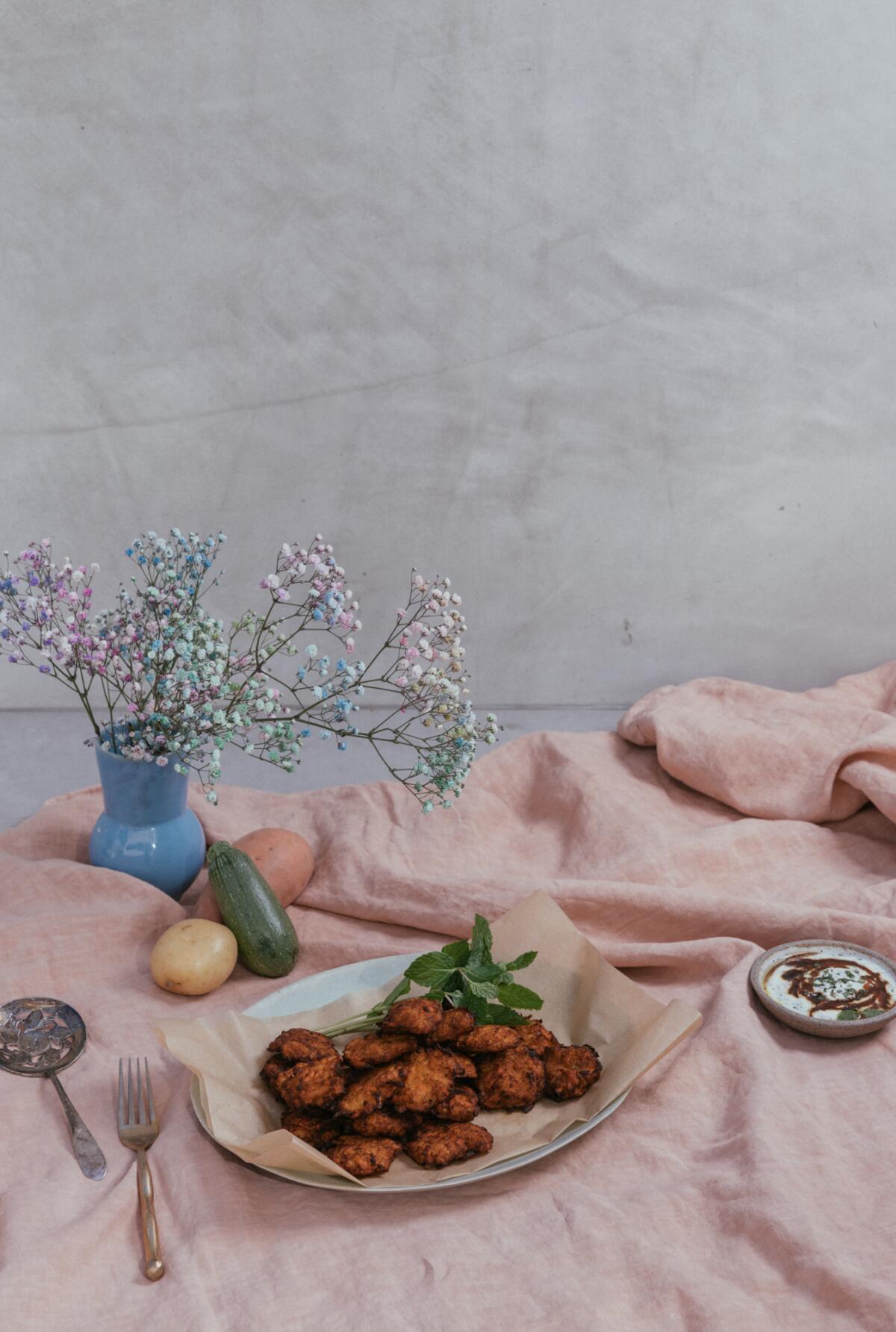
This is my own take on my dearest mom’s recipe. I hope you enjoy it as much as I do every Hanukkah, for celebrating all the miracles that come into your life and sharing them with others.
Tips for making latkes
• Mix the grated vegetables, squeeze them, and let the mixture sit in a colander, even while you’re frying. This will help any extra liquid drain.
• Don’t pre-make the latke patties. They need to be formed and then fried right away.
• If you’d like to double the portion, split it into two different bowls. The best way is to set aside the second portion without incorporating the rest of the ingredients. Add to the mixture right before you’re going to use it.
• You can also add a handful of chopped fresh herbs to the mixture. Parsley works great with this recipe.
• Fry six at a time. This way you still keep the oil at the correct temperature and you have more control over how long you fry it.
• Never move away from the stove. Once you start cooking something, watch it.
• If you have leftovers, you can keep them in a sealed container. Don’t use a microwave to heat them up again. Using a frying pan without oil, heat it up and place the latkes in the pan until warm. They are wonderful the next day and can be great in a sandwich with mayo, some spicy sauce and a sliced hard-boiled egg.
Latkes with Yogurt and Date Molasses
Shimi Aaron, a.k.a. babka king, is a chef, culinar advisor and recipe developer.
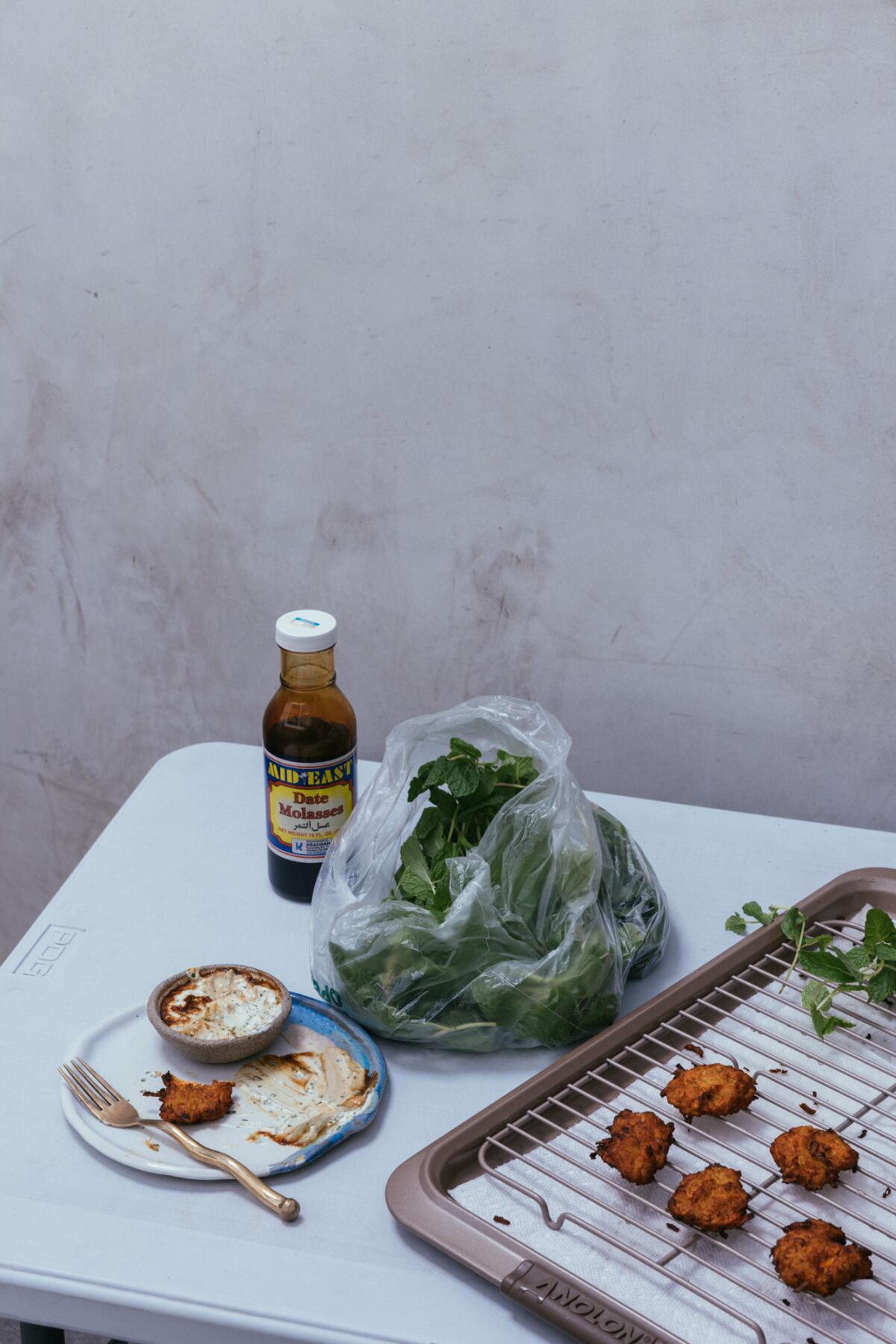
More to Read
Eat your way across L.A.
Get our weekly Tasting Notes newsletter for reviews, news and more.
You may occasionally receive promotional content from the Los Angeles Times.



